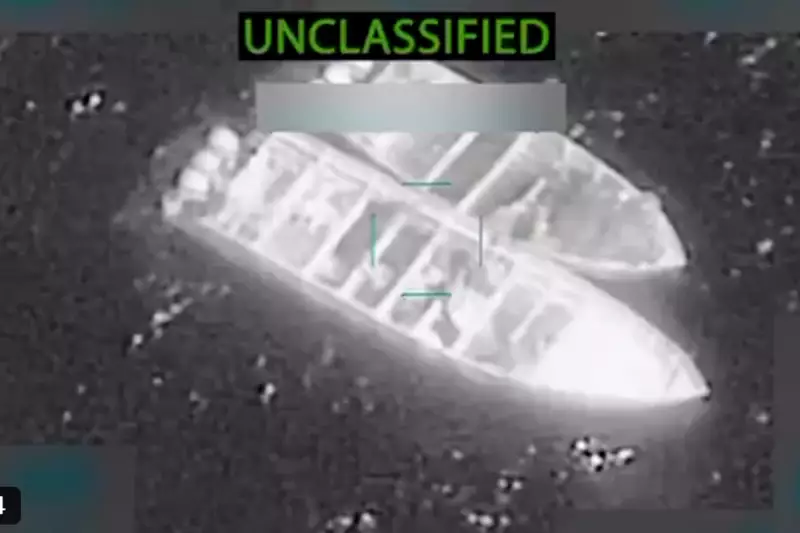
In a stunning display of military force against narcotics trafficking, United States warships have conducted aggressive operations targeting and destroying suspected drug smuggling vessels in the vast expanse of the Pacific Ocean.
Unprecedented Maritime Confrontation
The dramatic incidents, which have raised serious questions about international maritime law, saw American naval personnel firing upon and sinking multiple boats allegedly involved in transporting illegal substances. According to emerging reports, these confrontations occurred far from US territorial waters, placing the legality of such actions under intense scrutiny.
The Legal Firestorm Ignites
United Nations officials have expressed profound concern over the operations, with legal experts questioning the authority under which the US military conducted these strikes. The fundamental principle of freedom of navigation on the high seas appears to have been directly challenged by these aggressive tactics.
An anonymous UN representative revealed that formal discussions about potential violations of international maritime law are already underway behind closed doors. The central question remains: does the fight against drug trafficking justify what some legal scholars are calling "extraterritorial enforcement without clear jurisdiction"?
Escalating Tactics in Drug Interdiction
This represents a significant escalation in America's approach to combating drug smuggling networks that operate across international waters. Traditionally, naval interdiction efforts focused on boarding suspect vessels and seizing contraband, rather than destroying the ships themselves.
The recent operations suggest a shift toward more aggressive measures that could have far-reaching implications for:
- International maritime law and precedent
- Diplomatic relations with coastal nations
- Future drug interdiction strategies worldwide
- The balance between security and sovereignty
Global Implications and Reactions
As news of these operations spreads, maritime security experts are divided on the appropriateness of the tactics. While some applaud the aggressive stance against drug cartels, others warn of dangerous precedents being set that could lead to increased militarization of the world's oceans.
The international community now watches closely as this situation develops, with many nations likely to question whether such forceful measures represent appropriate enforcement or overreach that threatens the established order of maritime governance.





